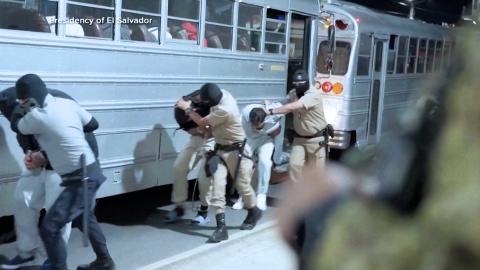
Supreme Court to Decide Landmark Case on 'Orwellian' Era of Social Media Censorship
The Supreme Court agreed on Friday to wade into the years-long, heated discussion about free speech online and decide whether states can defend the First Amendment by prohibiting social media platforms from censoring certain posts and accounts.
The justices will review laws passed by Republican legislatures and signed by Republican governors in Florida and Texas.
While the details vary, both laws aim to prevent social media companies from canceling users based on their respective viewpoints.
As the high court begins its new nine-month term on Monday, the nine justices will have to grapple with how laws written at the dawn of the digital age, or earlier, apply to today's online world.
 The case follows conflicting rulings by two appeals courts. One ruling upheld the Texas law. The other upheld portions of the Florida law but also affirmed the trial court's preliminary injunction preventing the law from taking effect.
The case follows conflicting rulings by two appeals courts. One ruling upheld the Texas law. The other upheld portions of the Florida law but also affirmed the trial court's preliminary injunction preventing the law from taking effect.
Florida's social media law was signed in May 2021. It limits platforms' ability to engage in de-platforming, censorship, shadow-banning, or post-prioritization—all terms defined in the law. Additional restrictions prohibit platforms from deplatforming or restricting the content of political candidates or "journalistic enterprises."
Later, in September 2021, Texas Gov. Greg Abbott signed into law a measure that he said protects Texans from wrongful censorship on social media platforms.
"Social media websites have become our modern-day public square. They are a place for healthy public debate where information should be able to flow freely — but there is a dangerous movement by social media companies to silence conservative viewpoints and ideas. That is wrong, and we will not allow it in Texas," Abbot said at the time.
By a 5-4 vote, the justices kept the Texas law on hold while litigation over it continues.
The justices themselves even showed a different alignment on the case. Chief Justice John Roberts and Justices Stephen Breyer, Sonia Sotomayor, Brett Kavanaugh, and Amy Coney Barrett voted to grant the emergency request from two technology industry groups that challenged the law in federal court.
Justices Clarence Thomas, Samuel Alito, Elena Kagan, and Neil Gorsuch would have allowed the law to remain in effect. In the dissent, Alito wrote, "Social media platforms have transformed the way people communicate with each other and obtain news."
Over the past several years, Republican elected officials in several states and in Congress have decried social media companies over their left-leaning policies. They argue the companies continually violate the Constitution's First Amendment protections for freedom of speech by censoring conservative views that those platforms don't like.
The tech industry has warned that restricting state laws would prevent platforms from removing extremism and hate speech.
Without offering any explanation, the justices had put off consideration of the case even though both sides agreed the high court should step in.
Federal Judge: US Gov't Assumed Role Similar to an Orwellian 'Ministry of Truth'
In the last three months, a lower court and a federal appeals court have ruled officials within the Biden administration pressured social media companies to remove posts 'ASAP' and accounts 'immediately,' and to 'slow down' or 'demote' content or they would face retaliation in the form of legal reforms and enforcement actions.
**Please sign up for CBN Newsletters and download the CBN News app to ensure you keep receiving the latest news from a distinctly Christian perspective.***
As CBN News reported earlier this month, the 5th U.S. Circuit Court of Appeals in New Orleans ruled the Biden administration violated the First Amendment rights of social media users posting questions about COVID-19, election fraud, and other subjects when it compelled tech companies who owned the platforms to remove or censor the posts.
The appeals court said the White House, the Surgeon General, the Centers for Disease Control, and the FBI cannot "coerce" social media platforms to take down posts the government doesn't like.
The court ruled that "numerous federal officials coerced social-media platforms into censoring certain social media content, in violation of the First Amendment."
The Biden administration is appealing the ruling.
However, the 74-page opinion also threw out broader language from an order that a Louisiana-based federal judge issued on July 4 that effectively blocked multiple government agencies from contacting platforms such as Facebook and X (formerly Twitter) to urge that content be taken down.
As CBN News reported in July, U.S. District Judge Terry Doughty cited "substantial evidence" of a far-reaching censorship campaign. He wrote that "evidence produced thus far depicts an almost dystopian scenario. During the COVID-19 pandemic, a period perhaps best characterized by widespread doubt and uncertainty, the United States Government seems to have assumed a role similar to an Orwellian 'Ministry of Truth.'"
On Sept. 15, Justice Alito issued a temporary stay on the lower court order restricting Biden administration officials from speaking with social media companies.



